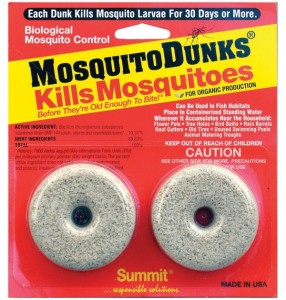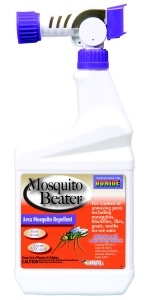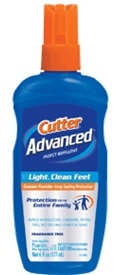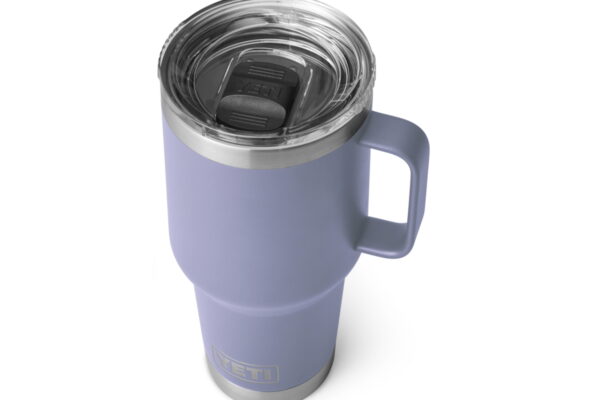The West Nile Virus and What you Can Do
 The state of Texas is on pace to have its worst year ever for spreading the West Nile Virus (WNV). Hundreds of Texans have become ill and as of August 16th, at least 17 have died from the virus. The reasons for this year’s intensity are complex, involving weather, bird migrations and mosquito populations. Primarily, this summer’s heat wave has accelerated the mosquito life-cycle. As a matter of public health, it is worth restating what we need to know about the West Nile Virus and what can be done to reduce its impact.
The state of Texas is on pace to have its worst year ever for spreading the West Nile Virus (WNV). Hundreds of Texans have become ill and as of August 16th, at least 17 have died from the virus. The reasons for this year’s intensity are complex, involving weather, bird migrations and mosquito populations. Primarily, this summer’s heat wave has accelerated the mosquito life-cycle. As a matter of public health, it is worth restating what we need to know about the West Nile Virus and what can be done to reduce its impact.
About West Nile Virus
West Nile Virus emerged around 1000 years ago and was first isolated by scientists in 1937. It is essentially an avian disease that can sometimes be passed to humans through a mosquito’s bite. The large majority (80%) of West Nile sufferers shows no symptoms at all and do not pass the virus on to others. About 20% of humans infected with WNV will show mild flu-like symptoms (fever, headache, nausea) for a few days to two weeks. In less than one percent of cases, symptoms can be severe and life-threatening. Older people (over 50 years old) are much more likely to fall into this severely impacted group. In a tiny fraction of cases, human-to-human transmission is possible through blood transfusion or from mother to child. As a public health menace, West Nile is not on par with even seasonal Influenza, which kills thousands of Americans yearly. It is, however, easier for individuals to take steps to dramatically reduce their likelihood of infection.
How to Fight WNV
As a mosquito and bird-born illness, WNV can best be avoided by reducing the mosquito population and avoiding getting bitten whenever possible. Additionally, any dead birds found in areas where the virus has been found should be avoided and reported to the local health authorities. Avoiding mosquito bites is desirable at any time and there are many established and proven methods to do so.
 The most effective way to avoid mosquito bites is to kill them before they can make a meal of your blood. Mosquitoes breed in untreated, standing water. If the water should evaporate before hatching, the eggs can remain dormant until the next rain. The first step you should take is removing as many sources of still water in your area as possible. Any pools that cannot be emptied for the summer should be treated with mosquito “dunks,” which contain a bacteria that is toxic to the young mosquitoes but harmless to you, your kids and pets. they generally last about a month and are certified for organic gardening. They can also be broken into pieces to treat smaller amounts of water. The same product is available in granular form if you need to treat a bunch of outdoor potted plants or a swampy backyard.
The most effective way to avoid mosquito bites is to kill them before they can make a meal of your blood. Mosquitoes breed in untreated, standing water. If the water should evaporate before hatching, the eggs can remain dormant until the next rain. The first step you should take is removing as many sources of still water in your area as possible. Any pools that cannot be emptied for the summer should be treated with mosquito “dunks,” which contain a bacteria that is toxic to the young mosquitoes but harmless to you, your kids and pets. they generally last about a month and are certified for organic gardening. They can also be broken into pieces to treat smaller amounts of water. The same product is available in granular form if you need to treat a bunch of outdoor potted plants or a swampy backyard.
 Mosquitoes are going to breed in sewers and other necessary damp areas, so to combat the adult population, there are a few methods to attack them. Several chemical companies make hose-end sprays that are better than you might expect. The active ingredient in our recommendation is Permethrin, a synthetic chemical that kills and repels all insects. As with all broad spectrum insecticides, you should weigh the benefits against the damage it will do to beneficial and incidental insects. It is not considered terribly toxic and is used (in a different product) to kill lice and other human parasites. Another option is Bonide’s Natural Mosquito Beater, which contains only essential oils that discourage the presence of insects. Spray solutions should be directed into shady areas and shrubs, where mosquitoes prefer to spend most of their time. The effect can last a month, although extreme weather will shorten the effectiveness of these products.
Mosquitoes are going to breed in sewers and other necessary damp areas, so to combat the adult population, there are a few methods to attack them. Several chemical companies make hose-end sprays that are better than you might expect. The active ingredient in our recommendation is Permethrin, a synthetic chemical that kills and repels all insects. As with all broad spectrum insecticides, you should weigh the benefits against the damage it will do to beneficial and incidental insects. It is not considered terribly toxic and is used (in a different product) to kill lice and other human parasites. Another option is Bonide’s Natural Mosquito Beater, which contains only essential oils that discourage the presence of insects. Spray solutions should be directed into shady areas and shrubs, where mosquitoes prefer to spend most of their time. The effect can last a month, although extreme weather will shorten the effectiveness of these products.
Similarly, insect foggers do an excellent short term job of killing and repelling mosquitoes. These solutions are almost always include toxic chemicals and are generally best used immediately before an event (like a party) as opposed to an everyday solution. For very large areas a propane powered fogging appliance is used with a liquid insecticide. For occasional household use, an aerosol option is probably best for most families.
Repellents
 The last line of defense is repelling these bloodsuckers from your person. Of course, the standard repellents that contain DEET are still effective, if smelly. An earlier blog post detailed both these products as well as the modern alternative, those containing picaridin (also known as icaridin), developed by the German chemical company Bayer. Picaridin has been shown to be just as effective and it doesn’t irritate the skin or break down plastics, as DEET occasionally does. There are other, more “natural” remedies commonly available (including our selections), but these are not yet scientifically proven and should probably be avoided if your primary concern is West Nile Virus. In a similar vein, many fragrant candles and reed diffusers can be utilized to repel, but their effectiveness is questionable and heavily dependent on wind direction and at best only cover a small area.
The last line of defense is repelling these bloodsuckers from your person. Of course, the standard repellents that contain DEET are still effective, if smelly. An earlier blog post detailed both these products as well as the modern alternative, those containing picaridin (also known as icaridin), developed by the German chemical company Bayer. Picaridin has been shown to be just as effective and it doesn’t irritate the skin or break down plastics, as DEET occasionally does. There are other, more “natural” remedies commonly available (including our selections), but these are not yet scientifically proven and should probably be avoided if your primary concern is West Nile Virus. In a similar vein, many fragrant candles and reed diffusers can be utilized to repel, but their effectiveness is questionable and heavily dependent on wind direction and at best only cover a small area.
It is worth remembering that the most basic way to avoid mosquito bites is to wear long sleeve shirts and pants, especially if you must be outside at dusk or dawn, when mosquitoes are most active. Mosquitoes enjoy the same temperatures we do and try to stay out of direct sunlight when possible. This is why you rarely get bitten on the beach, even though every other factor is in their favor. Check your window screens and repair any defective weatherstripping, as one mosquito trapped in your house will bite many times before it dies. Keep yourself informed about the West Nile Virus’s current status for the rest of this summer; the unseasonable weather has produced an unusual breakout this year that could linger longer than normal. Support your community’s efforts to spray for mosquitoes and report any excessive standing water on public lands or abandoned real estate. The West Nile Virus is not a joke and we all need act responsibly to prevent the disease’s spread.






